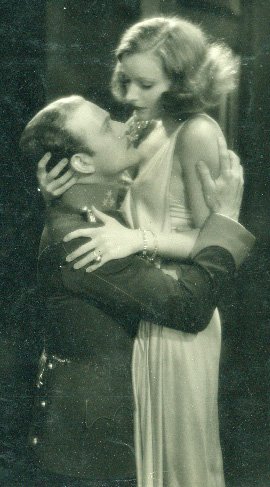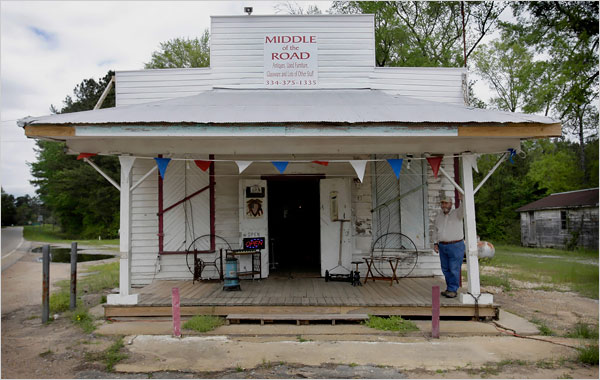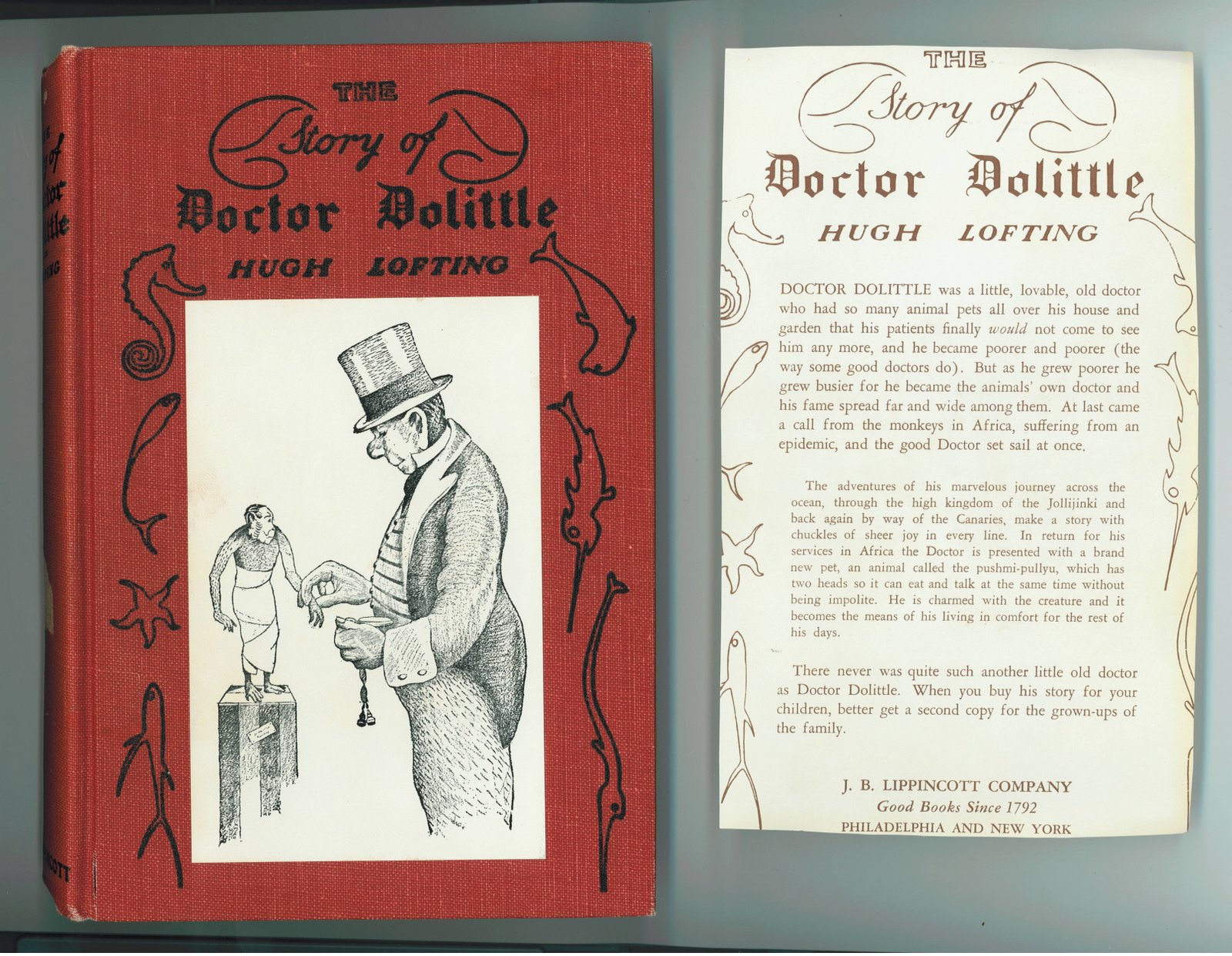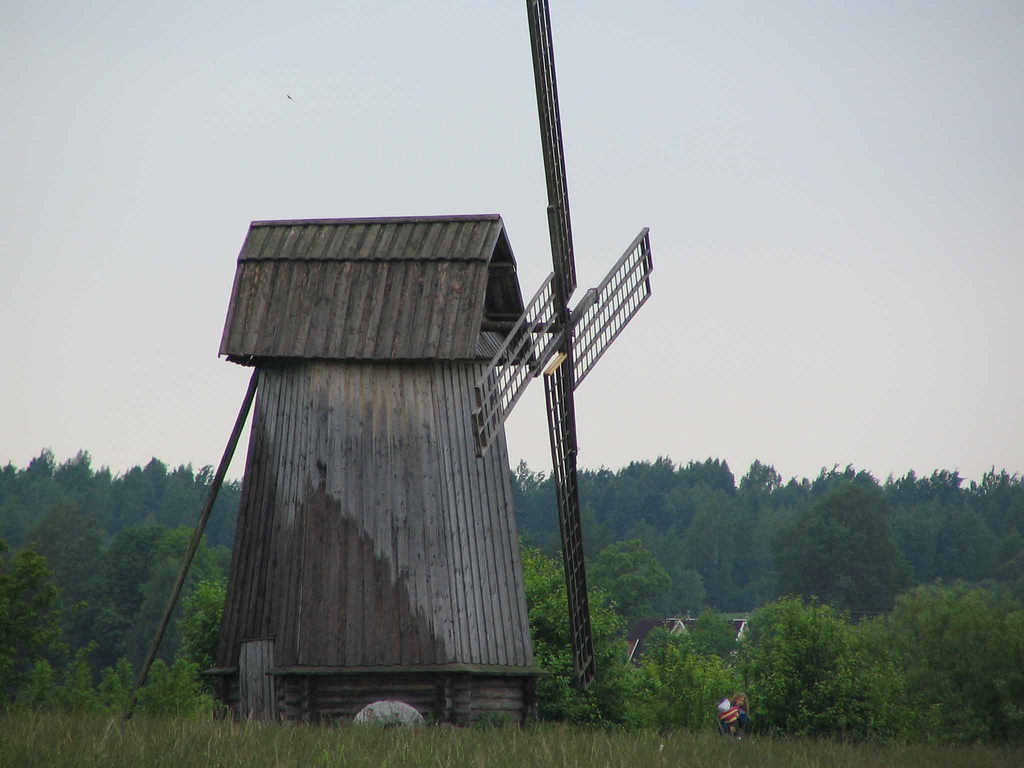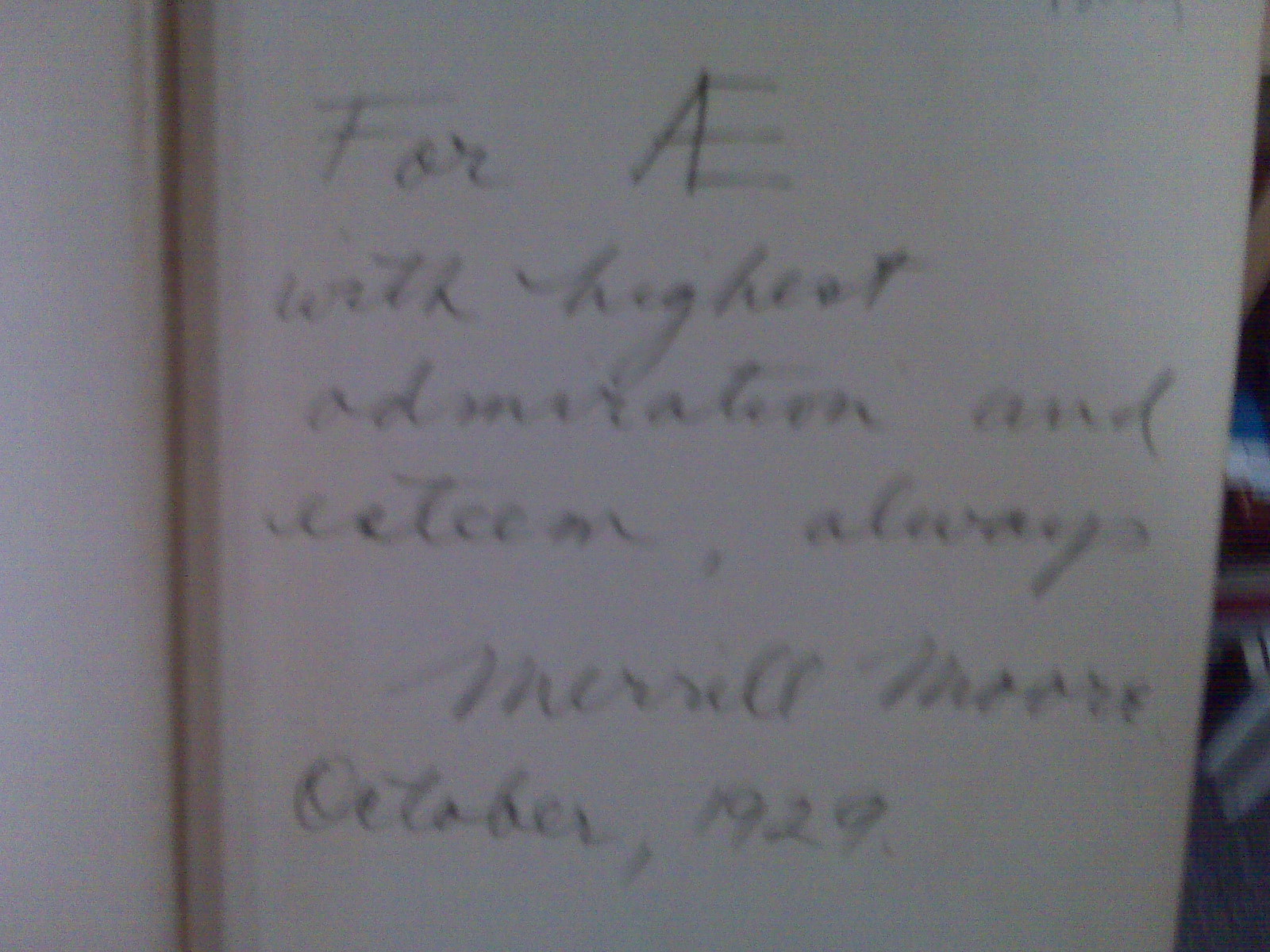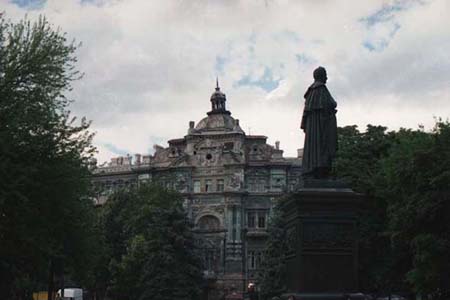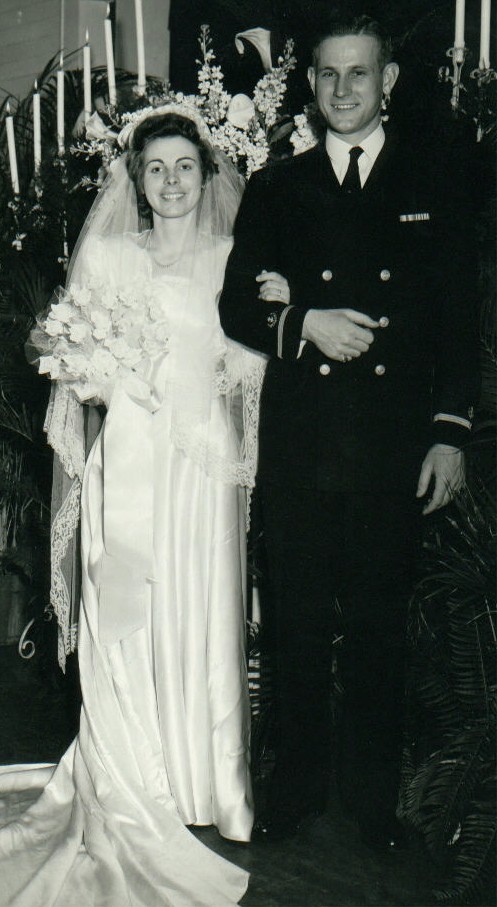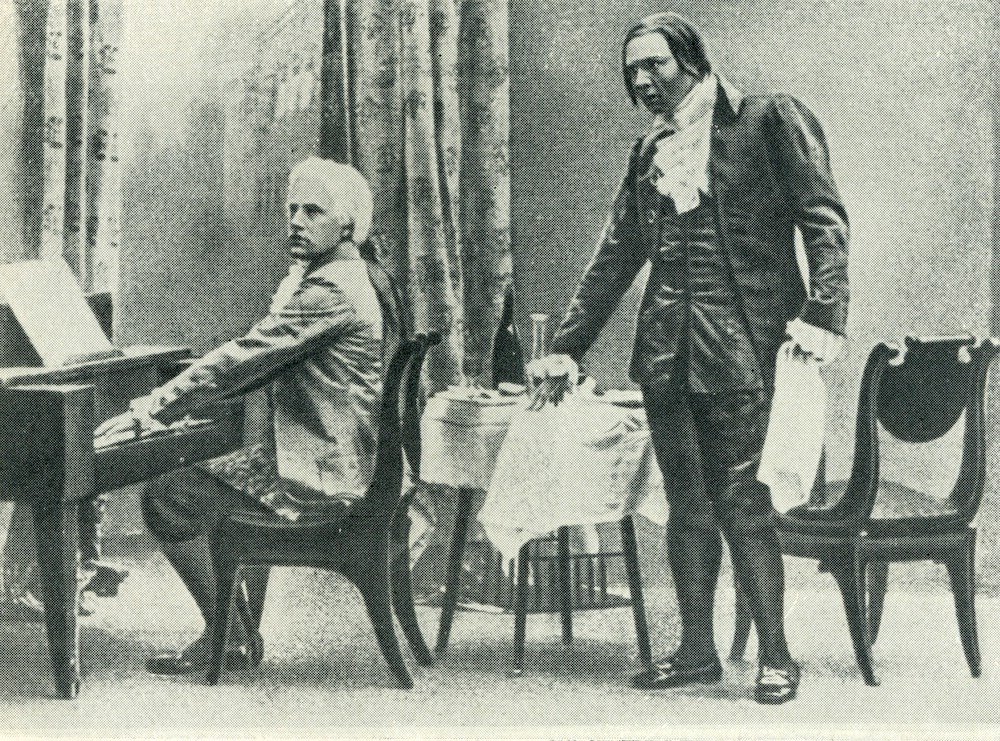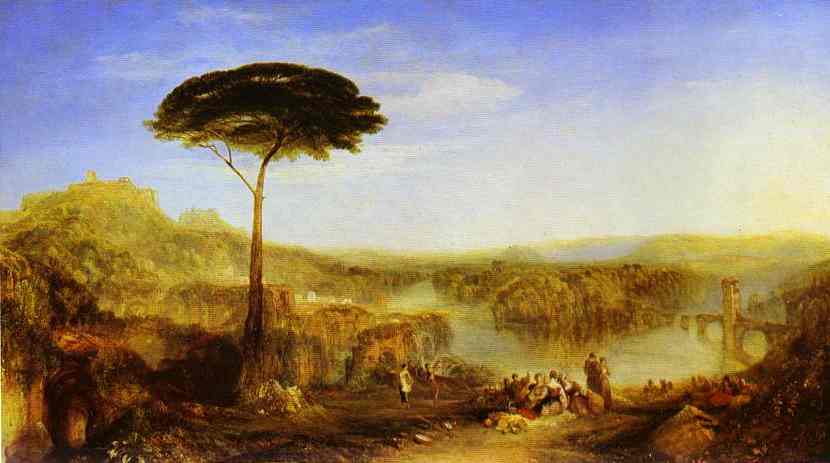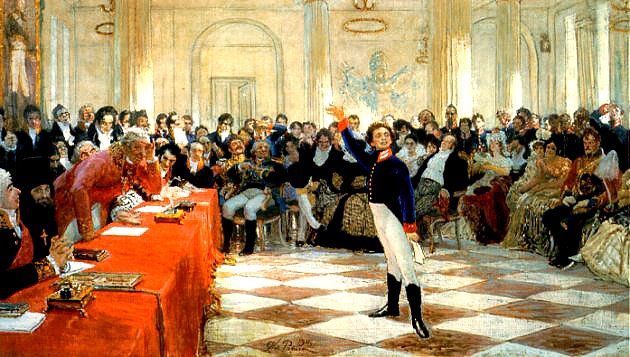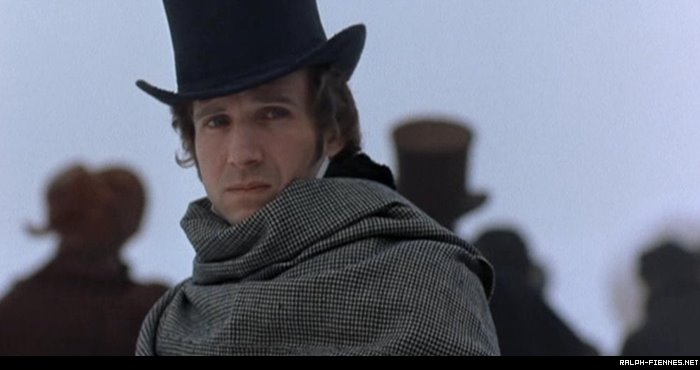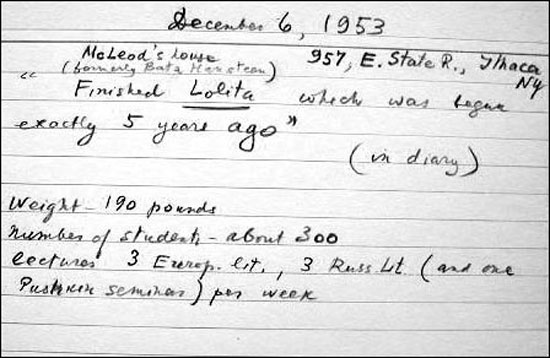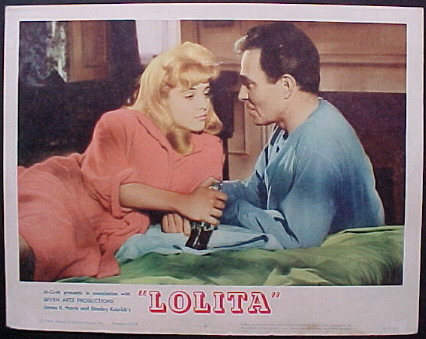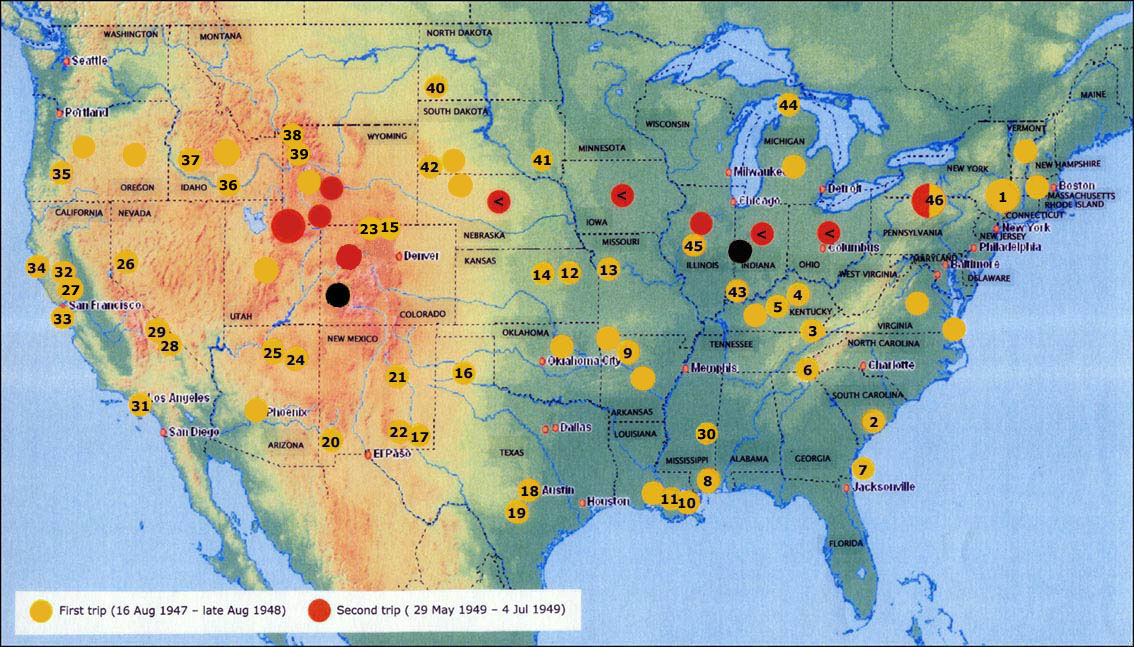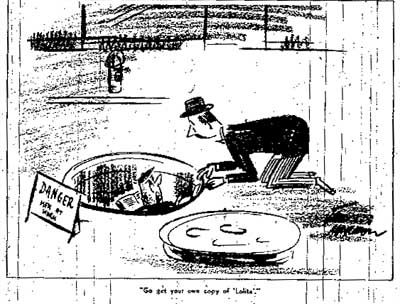… watching Greta Garbo in The Mysterious Lady… wow… ahem… OK, back to your regularly scheduled programming…
Listen to Pushkin’s poem in the original Russian: I loved you once: perhaps that love has yet To die down thoroughly within my soul; But let it not dismay you any longer; I have no wish to cause you any sorrow. I loved you wordlessly, without a hope, By shyness tortured, or by jealousy. I […]
The Middle of the Road antiques store on Highway 14 in Sprott, Ala Photo: Gary Tramontina for The New York Times Picture sourceBe careful what you allude to…you may see an article on it a couple of days later: On the Path of Walker Evans has Laura M. Holson retracing some of the Alabama trek […]
My parents kept all my books from when I was a kid, including this copy of Doctor Dolittle that one of my brothers gave me over 40 years ago. My wife and I have been reading it to the boys, and I should finish the last two chapters tonight. To say that it underwhelms me, […]
Confession–the most I have seen of Stanley Kubrick’s film Spartacus is the clip that is shown in the movie Clueless (“Christian had a thing for Tony Curtis so he brought over Some Like it Hot and Sporadicus“). So while I’m clueless on the myth, I’m also woefully ignorant on the history behind Spartacus’ uprising. After […]
I love it when many things come together unexpectedly and in ways you could never imagine. After posting on Merrill Moore and his poem “No Envy, John Carter” last week, what do I come across today? The recently released James Agee: Selected Poems (American Poets Project), within it the incomplete satire John Carter. But to make […]
Windmill in Mikhailovskoe, Russia (where Pushkin was exiled 1824 – 1826) Picture source With womankind, the less we love them, the easier they become to charm, the tighter we can stretch above them enticing nets to do them harm. – 4, vii ‘I’ve dreams and years past resurrection; a soul that nothing can renew… I […]
For AE with highest admiration and esteem, always Merrill Moore October, 1929Last week I was thumbing through the books at a used bookstore and something drew me to The Noise that Time Makes by Merrill Moore. Upon opening the cover, I was surprised to see the above inscription (I’m not sure why the photos turned […]
Half hero and half ignoramous, What’s more, half scoundrel, don’t forget. But on this score, the man gives promise That he will make a whole one yet. (More on Vorontsov’s monument can be found here)
Your cause of sorrowMust not be measured by his worth, for thenIt hath no end. (Macbeth Act V, Scene 8) Things that could not be known on that wedding day: Franklin Delano Roosevelt would complain of a headache the next day, passing away in nearby Warm Springs, Georgia Victory in Europe was less than a […]
Feodor Chaliapin as Salieri (1898) Picture source Thou shalt not, poet, prize the people’s love. The noise of their applause will quickly die; Then shalt thou hear the judgment of the fool And chilling laughter from the multitude. But stand thou firm, untroubled and austere; Thou art a king and kings must live alone. Thine […]
Childe Harold’s Pilgrimage by J.M.W. TurnerPicture source I had written a long post on Lord Byron’s influence on Pushkin, as well as Pushkin creating something beyond Byron. As I was re-reading it, I realized only people working on graduate degrees related to this would care. Hell, even I didn’t care by the time I reached […]
Ilya Repin’s painting “Alexander Sergeyevich Pushkin recites his poem before Gavrila Derzhavin during the Tsarskoye Selo Lyceum exam on January 8th, 1815” Picture sourceAlexander Pushkin was a member of the first Imperial Lyceum founded by Alexander I. (Several of his classmates would lead the Decembrist uprising.) The painting above is by Ilya Efimovich Repin. A […]
I’m not really sure. But here’s an article I enjoyed: Steeped in Shakespeare “Shakespeare’s plays were ubiquitous in antebellum America. They inhabited the schoolbooks, including Scott’s Lessons in Elocution, which Lincoln read as a boy. Dozens of editions circulated through the states and territories. The plays visited rural and urban stages in scenes and declamatory […]
Never one to do things in a consistent order (or even an order that even makes sense), I wanted to write about this movie before discussing the book. So I apologize in advance for referring to the work without directly addressing it first. For those unfamiliar with Eugene Onegin, here is a brief synopsis shamelessly […]
Alexander Pushkin by Vasily Tropinin (1827) Picture sourceI only know a little bit about Alexander Pushkin but find him a fascinating character. My limited introduction to him so far has been the movie Amadeus, which took his play “Mozart and Salieri” as a starting point. Eugene Onegin will obviously suffer since I am dealing with […]
Notes written by Nabokov about finishing Lolita“I have only words to play with!” That one quote continues to stick with me as my favorite line of the book as well as representative of so much within it. In the same declaration, Humbert Humbert bemoans the fact that he does not have Lolita to “play with,” […]
Picture source at FilmPosters.com Unfortunately I had to watch the movie in fits and starts over several days, but hopefully I won’t bungle any of the facts of the movie. There is a good overview and recap of the film at American Movie Classic’s filmsite.org. Two Views of Lolita, both of which are higher on […]
A geographical scrutiny of Vladimir Nabokov’s novel Lolitaby Dieter E. ZimmerPicture source Part Two was somewhat of a disappointment to me, which I’ll try to explain as I go along. The wordplay and parodies continue, but some contradictions (or at it seems to me) ultimately undermine the book. The seductive language continues, lulling the reader […]
This cartoon originally appeared in The New York Times Book Review on September 14, 1958. The caption reads, “Go get your own copy of ‘Lolita.’” Picture source The book developed slowly, with many interruptions and asides. It had taken me some forty years to invent Russia and Western Europe, and now I was faced by […]
